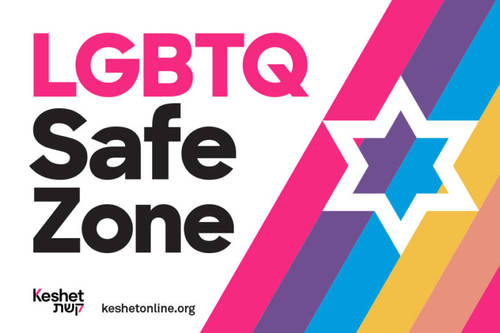Day 36: Partial Successes
The Song of the Sea is beautiful, but wasn’t the celebration a bit premature? After all, the purpose of the Exodus was not simply to get out of Egypt, or to make it to the other side of the Sea of Reeds. It was to receive the Torah at Sinai, and beyond that, to reach the Promised Land. Rejoicing after the miracle at the Sea feels a little bit like a football player starting his end zone dance on the five yard-line; close, but not quite there yet. Yet the Israelites’ celebration at the Sea reminds us that it is important to acknowledge and laud our own and each other’s accomplishments, even and perhaps especially the smaller and partial achievements. Many of us have a tendency to see our own and each others’ failings in sharper relief than successes; we erroneously assume that unless the triumphs are great or complete, they don’t count. This assumption, in the aggregate, can harm us emotionally and spiritually, can inhibit our motivation to pursue our purpose, and can damage our relationships. We must never lose sight of what has yet to be done and the journey that lies ahead. But we also must simultaneously learn to honor where we’ve been and what we’ve accomplished, however minor or iterative.
Day 37: The Heart of Torah
For centuries, commentators have attempted to distill the Torah’s 613 commandments to a handful of precepts or fewer. According to one ancient tradition, there is one act that can serve as a substitute for following all the Torah’s laws; or, to put it another way, by doing this one deed, one is regarded as having fulfilled all the other precepts: doing “what is upright in God’s eyes” has “fulfilled all God’s statutes” (Ex. 15:26). A midrash explains that this refers to being honest, transparent, and trustworthy in one’s business dealings: “anyone who deals honestly so that their fellows appreciate them is regarded as if they had fulfilled the entire Torah” (Mekhilta d’Rabbi Yishmael, Parashat Beshallah 15:26). Upholding truth, pursuing justice, and being good to others are the heart of Torah, the essence of what God calls us to do. The rest is commentary; go and learn (cf. B. Shabbat 31a).
Day 38: Day In, Day Out
The manna with which God fed the Israelites in the wilderness -- bread that miraculously fell from the sky -- is an eminently practical innovation. The Israelites are traversing a barren wilderness where food is scarce, so God devises a way to sustain them on the journey. Yet in many ways, the manna does more than physically nourish the Israelites; it morally and spiritually prepares them as well. For example, the Torah reports that the people had to collect the manna each and every day, and that this was in fact a test for whether they “would follow My teaching, or not” (Ex. 16:4). Why did they have to collect the manna each and every day? Why not once a week, or once a year? And in what way would this behavior reveal their readiness to receive the Torah? Perhaps because living a life of Torah is not a once-in-a-while proposition. It’s not simply about celebrating a holiday here and attending a synagogue service there. It’s similarly not merely about fasting on this day, or feasting on another. Rather, the Torah is designed to be all-encompassing, governing every aspect of life -- our relationships, our business dealings, our diets, and more still -- and relevant to each moment, every decision, all of our deeds. Therefore living a life of Torah calls for discipline, routine, and practice; engaging in its precepts and gleaning its wisdom each and every day. God could have given the Israelites at once all the manna they needed for the entire wilderness sojourn. By requiring them to collect the manna on a daily basis, God conditions the Israelites -- and teaches us -- that our relationships with the Divine and with each other; living lives of spiritual fulfillment, sacred wisdom, and upright action; require regular and sustained effort.
Day 39: Finding Faith
The manna -- bread that miraculously fell from the sky -- that God gave the Israelites to eat in the wilderness was both for physical nourishment as well as moral and spiritual training. How so? According to the Torah, the people had to collect the manna each and every day. God, of course, could have given the Israelites at once all the manna they needed for the entire wilderness sojourn. Why then did God make the people collect the manna daily? Perhaps it was to teach them about faith (Mekhilta d’Rabbi Yishmael, Parashat Beshallah 16:4). Contrary to popular understanding, faith isn’t about the absence of doubt. Rather, it’s about being able to live despite uncertainty, to act in the face of what we do not -- and perhaps cannot -- know. It’s about trusting in our own ability to determine our next best step, even when we have incomplete information, and to trust in that the guidance of others -- including God -- is both caring and wise, offered with our best interests at heart and rooted in knowledge we do not yet possess. In this respect, faith is a necessary prerequisite for a life of Torah, something the Israelites had to learn before arriving at Sinai, and something we too must cultivate in order to discern God’s directives for our lives and world. God leaves the Israelites to wonder each day whether bread will come again tomorrow, challenging them to go out and glean despite their uncertainty, trusting without proof that God will provide. Little by little they learn to step forward despite their doubts -- in gathering their food and, ultimately, in living their lives -- learning that the Torah also offers to us.
Day 40: Constant Cravings
One of the noteworthy features of the manna -- the bread that fell from the sky which God gave the Israelites to eat in the wilderness -- is that one could take as much as one needed for a day, but if any remained over until the next day, it would become rotten and worm-infested. Parenthetically, this is the origin of the Jewish tradition of having two loaves of bread at the Sabbath table: since harvesting and gathering are forbidden on the Sabbath, the Israelites were instructed to take a double portion of manna the day before so they would have enough food for Friday and Saturday; and unlike on every other day, the manna left over for the Sabbath wouldn’t rot. The short shelf-life of manna was meant to teach us not to hoard resources, how to be satisfied with that which is sufficient for our needs, how to appreciate what we have without constantly hungering for more. According to a 2011 article in the New York Times, grateful people sleep better and have less anxiety. Grateful people are less likely to suffer from depression, and are more likely to be happy and satisfied with life. Conversely, focusing too much on what we lack can consume us, enslaving us to our possessions and our pursuit of more, and lead us to care more about what we want than on what others need. Perhaps this is why the Jewish tradition so emphasizes gratitude: Those who attend synagogue are overwhelmed with opportunities to express gratitude, as it is stressed in Jewish prayer over personal petition; the Talmud adjures us to say at least one hundred blessings, one hundred acts of thanks, every day; and in the Jewish tradition, nearly every act is preceded and/or followed by an expression of thanksgiving. The great medieval sage Maimonides taught that central to a virtuous life is eating only when one is hungry, and stopping before one’s belly is stuffed (Laws of Virtues 4:1-2). Learning how to be satisfied with enough is essential to the wellbeing of our bodies and souls, an obligatory part of receiving and living a life of Torah.
Day 41: The Eternal Struggle With Amalek
Shortly after the Exodus from Egypt, a nation known as Amalek attacked the Children of Israel in the wilderness. After successfully, perhaps miraculously, fending off this assault, God instructs Moses, “Inscribe this in a document as a reminder, and read it aloud to Joshua: I will utterly blot out the memory of Amalek from under heaven!” (Ex. 17:14). The Book of Deuteronomy, recalling the same story, similarly exhorts the Israelites to “blot out the memory of Amalek from underneath the heavens — do not forget!” These texts, however, raise a question: The biblical Israelites had a lot of enemies, so why is Amalek singled out for unique condemnation? An answer, perhaps, can be found in the Deuteronomy version, which explains that Amalek “surprised” the Israelites, attacking them from behind, targeting “all the vulnerable who were behind you.” There is something singularly evil about targeting the vulnerable, and the kind of foe who would do such a thing is someone God commands us to be eternally vigilant against. Ultimately, regardless of how peaceful and prosperous we become, the pernicious force that targets the weak is uniquely enduring and persistent. Yet a difficulty still remains: if targeting the vulnerable is what enemies like Amalek do, and the kind of evil embodied by Amalek is ubiquitous, then shouldn’t the Children of Israel have known that leaving their weakest members exposed and defenseless put them at great risk of harm from an enemy like Amalek? As one modern Hasidic master, Rabbi Yehudah Leib Zachs, puts it, “If the Israelite nation had not forgotten these vulnerable people, and rather had brought them under the protection of the Divine Presence… by including them with the rest of the population, Amalek could not have harmed them.” (Iturei Torah, Parashat Ki Teitzei). This is the real reason why we are admonished to eternally remember what happened with Amalek: Because there will always be enemies that target the vulnerable, whether those enemies are human or forces of nature, whether those enemies are deliberately hostile or indiscriminately damaging. The biblical encounter with Amalek is meant to remind us that our job is to keep the most vulnerable among us front of mind, to ensure the weakest among us are protected, included in our communal concern and shielded by our care.
Day 42: Moses’ Hands
The Torah records that as the Israelites battled the Amalekites in the wilderness, they prevailed every time Moses lifted up his hands, and were routed every time Moses put down his hands (Ex. 17:11). The ancient rabbis for their part refused to accept that Moses’ hands could have caused Israel to win the war or to destroy Amalek. Rather, they offered a more naturalistic explanation, that when the Israelites looked to Moses’ raised hands, they were reminded of God above, which facilitated their victory (Mekhilta d’Rabbi Yishmael, Parashat Beshallah 17:11). In other words, the Israelites were empowered by their faith and propelled by their purpose; their spiritual and psychological disposition enabled their victory, not their strength, skill, or weaponry alone. This understanding echoes the famous teaching by the biblical prophet Zechariah, “Not by might, and not by power, but by My spirit, says the Infinite of Multitudes” (Zech. 4:6). Power and prowess may be important, but prevailing in battle and in life’s challenges requires more: we need belief, desire, and conviction. When the Israelites saw Moses’ raised hands, they remembered their might and their mission. And we too can lead ourselves to greatness when we believe in our abilities and remain mindful of our purpose.




